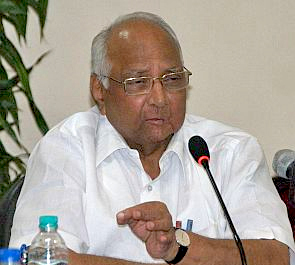Kozhikode, Aug 8: Kerala Chief Minister Pinarayi Vijayan on Saturday announced a compensation of Rs 10 lakh to the next of kin of each passenger who died when an Air India Express flight veered off the runway while attempting to land at the Karipur International Airport here on August 7.
He was briefing the media after visiting the crash site at the airport and the injured at the Kozhikode Medical College Hospital.
Offering his condolences, the Chief Minister said, "Apart from the solatium for the victims, the state government would bear the treatment expenses of all those injured in this unfortunate plane crash irrespective of the hospitals they are in. The Civil Aviation Ministry and other Central Government agencies are expected to announce compensation for the air passengers.
If any further assistance is required, the State Government will take an appropriate decision at that time to support them to get back to a normal life."
"However, the immediate task now is to ensure the best possible treatment for the survivors of the accident. The District Authority is coordinating the treatment of those rescued who are now in 16 hospitals across Kozhikode and Malappuram Districts," added Vijayan.
Of the 190 people on board the ill-fated plane, there were 184 passengers and six crew members. Of the 18 dead so far, 14 are adults (seven males and females each) and four are children. Both the Pilot and the Co-Pilot are among those dead. At present, 149 passengers are hospitalised, of them 23 with serious injuries. Till now, 23 passengers have been discharged. There are few passengers from Tamil Nadu and Telangana also.
All the dead have been identified, eight from Kozhikode district, six from Malappuram district and two from Palakkad district. The post mortem process has been expedited despite the Covid threat and is expected to finish before evening. All the accident victims will be tested for Covid including those who died in the crash. So far, only one victim has tested positive for coronavirus, the Chief Minister said.
He also appreciated the instant response by the local public living in the vicinity of the airport and also the local authorities to this tragedy which ensured the minimum loss of lives in a disaster of such large magnitude as a plane crash. The rescue operations were finished in the shortest possible time yesterday.
"Even though 18 precious lives have been lost due to the impact of the crash, the rescue operations were a miraculous work. The general public and the officials played a big role in spearheading the rescue operations," he said.
Vijayan along with Governor Arif Mohammad Khan reached Kozhikode this morning.
Governor Arif Mohammad Khan expressed his condolences and sympathies to the families of the accident victims and his best wishes for the speedy recovery of those injured.
The Chief Minister was accompanied by the Niyamasabha Speaker, P. Sreeramakrishnan; Minister for Industry E.P Jayarajan, Minister for Health and Social Justice, K K Shailaja; Minister for Agriculture V.S Sunilkumar; Minister for Ports Ramachandran Kadannappalli; Minister for Transport AK Saseendran, Minister for Excise T.P Ramakrishnan, Chief Secretary, Dr Vishwas Mehta; and State Police Chief, Loknath Behra, DGP.
The Minister for Local Self Governments, A C Moideen and the Minister for Higher Education and Welfare of Minorities, Dr K T Jaleel were already present in Kozhikode.
 Pune, Aug 11: Terming Ishrat Jahan, who was killed in an alleged fake encounter by the Gujarat Police, as an "innocent college girl", Union Minister and NCP chief Sharad Pawar Saturday said Muslims cannot be blamed for reacting to "atrocities" against them.
Pune, Aug 11: Terming Ishrat Jahan, who was killed in an alleged fake encounter by the Gujarat Police, as an "innocent college girl", Union Minister and NCP chief Sharad Pawar Saturday said Muslims cannot be blamed for reacting to "atrocities" against them.




Comments
Add new comment